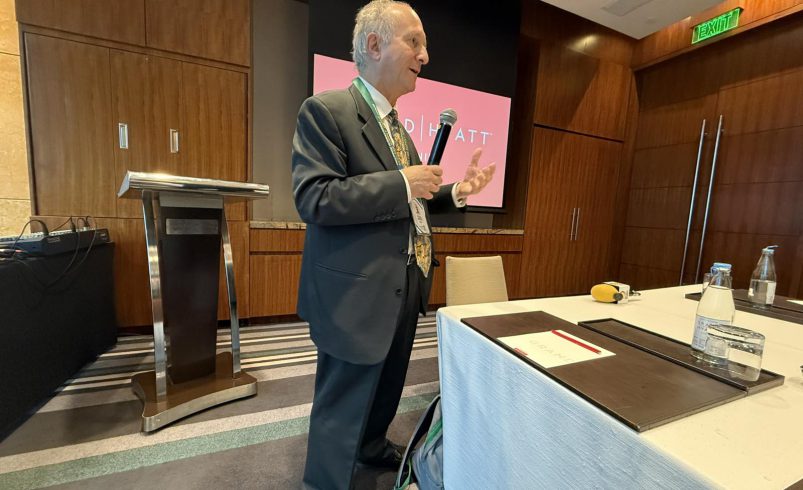Argentinian firm INVAP offers nuclear expertise to support Philippines’ energy program
- October 6, 2025
- 0

Argentinian engineering company INVAP has expressed its readiness to work with Philippine agencies and private firms in developing the country’s nuclear energy sector, offering to share Argentina’s four decades of experience in building a self-sustaining nuclear industry.
In a media briefing at the Philippine International Nuclear Supply Chain Forum, Pablo Abbate, INVAP’s Vice President for Nuclear Business Development, said the company has already initiated discussions with local stakeholders for possible collaboration and technical support.
“We are open to exploring partnerships in nuclear development,” Abbate said. “INVAP has helped several countries in building reactors, and we can bring those lessons here—both the technical and institutional aspects.”
INVAP, originally a spin-off of Argentina’s National Atomic Energy Commission, has built research reactors in Australia, the Netherlands, Saudi Arabia, Brazil, Algeria, and Egypt, and has even expanded its expertise into satellite technology, radar systems, and nuclear medicine.
Abbate said Argentina’s experience shows that nuclear energy development extends far beyond electricity generation. “When you develop nuclear capability, you also develop national industries,” he explained. “It strengthens everything from electronics to manufacturing to scientific research.”
He shared that Argentina had also faced challenges similar to the Philippines’ Bataan Nuclear Power Plant (BNPP), when one of its own facilities was delayed for 12 years due to financing problems. Local companies later completed the project after foreign contractors withdrew.
“It proved that investing in your own human capital and local supply chain pays off,” Abbate said, adding that Argentina now manufactures its own nuclear fuel and operates all three of its power plants independently.
Abbate also noted that INVAP had previously offered assistance to assess and refurbish the BNPP, describing the task as “technically possible but requiring modernization.”
“It’s like restoring a classic car—you can do it, but you have to replace and update many parts to meet today’s safety and performance standards,” he said.
On the issue of small modular reactors (SMRs), Abbate cautioned that the technology may not yet be the best fit for the Philippines’ energy needs.
“SMRs can be good for countries with small demand or limited grid capacity,” he said. “But for a country like the Philippines—with big demand and many islands—it may be less economical compared to a full-scale plant.”
He said that Argentina’s approach, which combines government oversight with a strong domestic industry, could serve as a model for the Philippines as it transitions into nuclear power.
Abbate emphasized that nuclear programs succeed when they are pursued not as prestige projects, but as long-term national strategies for energy security and industrial growth.
“Nuclear power should not be a luxury—it’s a necessity,” he said. “It creates capabilities that last generations, from science and engineering to medicine and manufacturing.”
He also advised the Philippines to maintain transparency, engage with the public, and invest in education and technical training to sustain the workforce needed for the sector’s growth.
“Public trust and education are as important as technology,” Abbate said. “You can’t build a reactor without building confidence.”
Do you think international partnerships like this could accelerate the Philippines’ path toward energy independence through nuclear power?
Follow Power Philippines on Facebook and LinkedIn or join our Viber community for more updates.